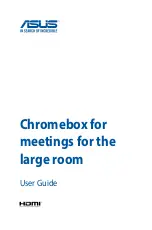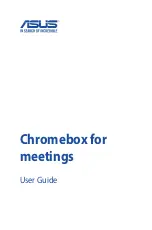
Setting
Description
Default Zone
types
Automatically
respond to
H.323
searches
Determines what happens when the VCS receives an H.323 search,
destined for this zone.
Off
: an LRQ message is sent to the zone.
On
: searches are responded to automatically, without being forwarded to
the zone.
Off
Neighbor
H.323 call
signaling port
Specifies the port on the neighbor to be used for H.323 calls to and from
this VCS.
This setting only applies if
Automatically respond to H.323 searches
is
On
(which includes when the
Infrastructure device
profile is selected), as
the search process normally identifies which call signaling port to use.
1720
Neighbor
Automatically
respond to
SIP searches
Determines what happens when the VCS receives a SIP search that
originated as an H.323 search.
Off
: a SIP OPTIONS or SIP INFO message is sent.
On
: searches are responded to automatically, without being forwarded.
This should normally be left as the default
Off
. However, some systems do
not accept SIP OPTIONS messages, so for these zones it must be set to
On
. If you change this to
On
, you must also configure pattern matches to
ensure that only those searches that actually match endpoints in this zone
are responded to. If you do not, the search will not continue to other lower-
priority zones, and the call will be forwarded to this zone even if it cannot
support it.
Off
Neighbor
DNS
Send empty
INVITE for
interworked
calls
Determines whether the VCS generates a SIP INVITE message with no
SDP to send via this zone. INVITES with no SDP mean that the destination
device is asked to initiate the codec selection, and are used when the call
has been interworked locally from H.323.
On
: SIP INVITEs with no SDP are generated.
Off
: SIP INVITEs are generated and a pre-configured SDP is inserted
before the INVITEs are sent.
In most cases this option should normally be left as the default
On
.
However, some devices do not accept invites with no SDP, so for these
zones this should be set to
Off
.
Note that the settings for the pre-configured SDP are configurable via the
CLI using the
xConfiguration Zones Zone [1..1000]
[Neighbor/DNS] Interworking SIP
commands. They should only be
changed on the advice of Cisco customer support.
On
Neighbor
DNS
SIP poison
mode
On
: SIP requests sent to systems located via this zone are "poisoned" such
that if they are received by this VCS again they will be rejected.
Off
: SIP requests sent out via this zone that are received by this VCS again
will not be rejected; they will be processed as normal.
Off
Neighbor
Traversal
client
Traversal
server
DNS
Cisco VCS Administrator Guide (X8.1.1)
Page 152 of 507
Zones and neighbors
Configuring zones
















































